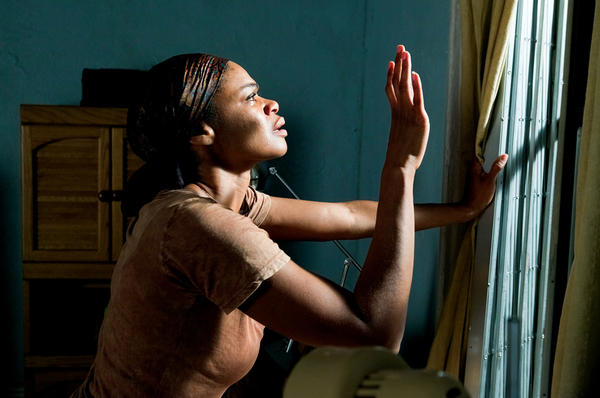For Colored Girls was good.
No it wasn’t good.
Well maybe it was good.
But it wasn’t good enough.
For people unfamiliar with Ntozake Shange’s 1975 play, it might have seemed good. Spectacular even. It’s a rarity. A drama about black women addressing rape, abortion, incest, and domestic abuse, allowing black actresses opportunity to flex their tear ducts.
Many women unfamiliar with the play will adore it. Perry has given screen time to issues that are rarely discussed, reaching a wider and more diverse audience than Shange’s play alone might ever see. A generation of girls will hear what the movie has to say and that is important… but,
But
It could have been so much more. And that is the problem. Yes it’s a black film about black women, but hoopla over a rarity’s very existence can blind folks to its mediocrity. Perry’s movie is plasticized. Dumbed down. Bullshitted up.
As Lady in green says:
“Somebody almost walked off wid all my stuff”
In this case it was Tyler Perry.
Colored girls deserve better than this soulless and simplistic adaptation. Our stories should be told in a real way, the way the ladies in blue, yellow, red, brown, purple, and green, share them. Colored girls deserve more than this. All girls deserve more than this. And that’s the whole point of the damn play.
Shange gave black girls a voice. Ask any lady her first impressions of the play and the response will be passionate. Small words and small feelings will not do. Words of any size may not do at all. Something has found a route into your gut. It’s double checked the darkest corners, gathered up all that’s there, and pushed it up. It spells it out for you.
“I usedta live in the world now I live in Harlem and my universe is six blocks.”
These characters demanded to be heard. Recognized in words and rhythm and movement and music. In the magic world the play exists in, something had come to a head. Things would not be contained any longer. Seven ladies were going to tell you about it. You were going to listen.
But Perry’s film has none of that energy. It does not crackle.
Its first problem is a simple one: It’s directed by a man.
(Now wait a minute. Let me explain)
I have done the math:
For women reading Shange’s play 86% of the power and importance of the work is derived from its intimacy: Our awareness that these stories are from, with, about, to, and by women. Women talking to each other, in the presence of one another, about their lives. It is all woman. So as soon as the work is “by” a man it loses some of its impact. The film cannot be divorced from the context of “A Tyler Perry Production”.
This isn’t at all to say a man couldn’t direct an excellent version of the work. I don’t believe that in order to relate to a narrative you must have experienced it for yourself. Personal experience though important, does not always equal great profundity or even insight. But from the beginning For Colored Girls was a production contained within a male controlled, literally directed, framework. This compromising of power might become negligible in an otherwise excellent adaptation. It might be worth it in exchange for brilliance.
But this was not brilliance.
The movie is doomed from the opening titles (font choices say so much).
Paul Hall, one of the movie’s producers, has touted the film’s “1970’s European feel“. That is certainly reaching. And reaching. And reaching.
The film wants desperately to be taken seriously as an artistic endeavor. When a film’s grasping for respect is the first thing you notice, you’re in for a horrible ride.
This is illustrated well in a ridiculous scene where Anika Noni Rose’s brutal rape is cross cut with shots of Janet Jackson’s character at the Opera. As Rose is raped she watches the clock. As Rose is raped, Jackson watches the opera. A single tear falls down her cheek a la Cher at La Boheme in Moonstruck. What was meant as a dramatic and symbolic zinger robs the moment of its real power. The woman is being raped. Show the rape. Show her face. You don’t need to emphasize it by juxtaposing it with anything, let alone the superfluous Janet Jackson character.
Though all the actors did their best, Macy Gray and Phylicia Rashad’s performances were the strongest. They managed to blend their monologues into the flow of the film, while other deliveries were jarring. And this is Perry’s biggest failure.
He awkwardly attempts to force Shange’s series of poem/monologues into a conventional narrative.
The rhythm and flow of the play is an integral part of the work. As important as each and every word. Maybe more important. This rhythm however, is missing in the picture, a sign of Perry’s very literal approach to a choreopoem that like any poem, is about rhythm and feeling. You feel it first and understand it next. It could have been done, with sound, camera movement, editing etc. but Perry created a film with commercial flow and pacing. The unique rhythm of Shange’s play remains only in the monologues. When these are performed they feel false, clumsy and out of place. Like clapping off beat.
You see, Shange and Perry are listening to two very different songs.
Let’s imagine it’s “Strange Fruit”
This is Shange’s version:
This is Perry’s:
This is what Perry and Hollywood think we want. This is what they think we can relate to.
We could’ve heard Billie Holiday. Even Nina Simone.
Instead we heard Common featuring John Legend produced by Kanye West.
The problem is not what the film is. It is what it could have been and why it wasn’t.
Doesn’t that make you angry?
It should.



Comments
12 responses to “For Colored Girls Who Have Considered Suicide… When They Saw Tyler Perry’s Adaptation”